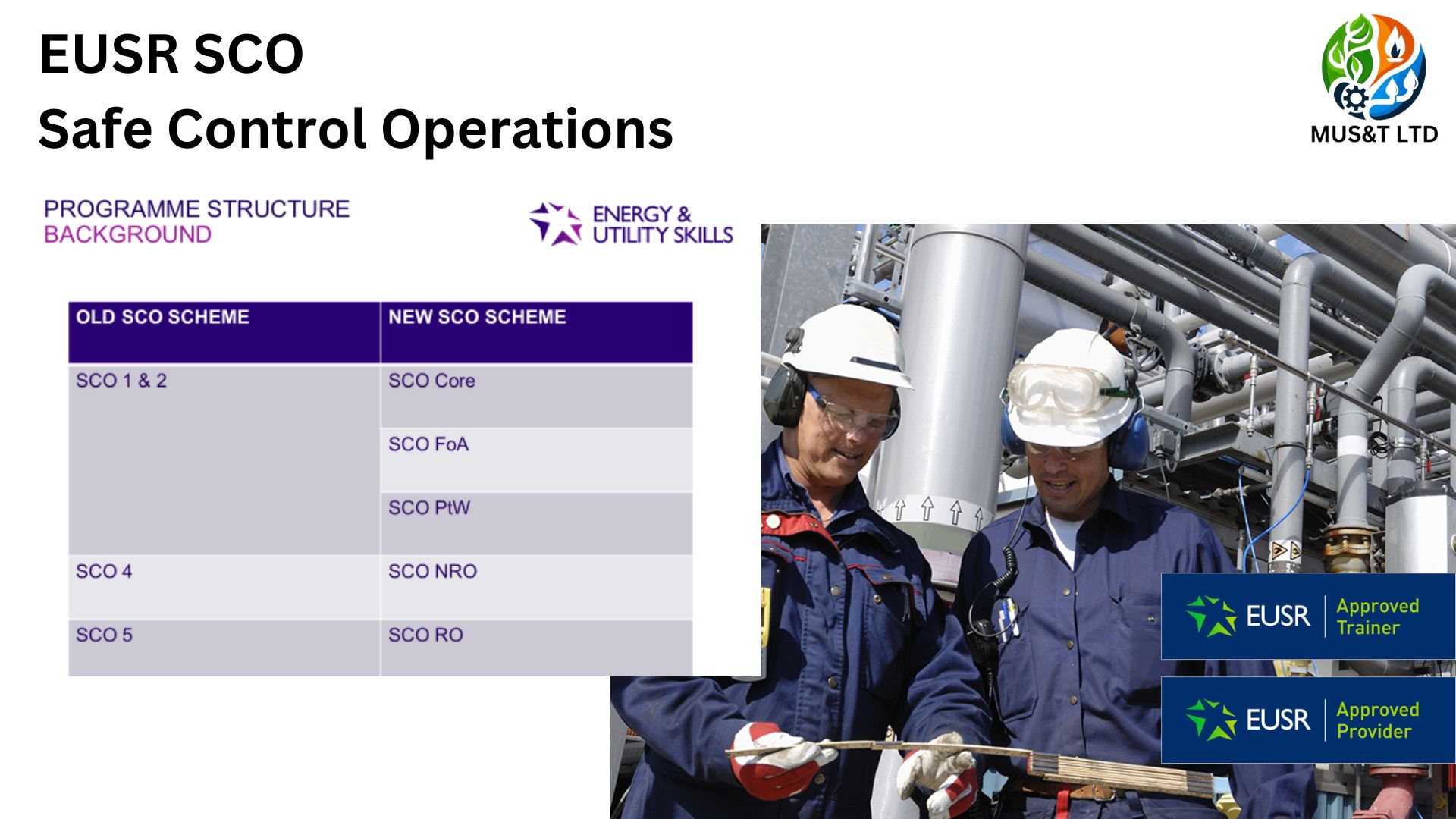Safe Control Operations
MUS&T LTD
Stand: J70

The Safe Control of Operations (SCO) scheme ensures that individuals working on the gas network are trained to do so safely by understanding gas network procedures and correct perimetry.
The SCO scheme is the knowledge-based part of a Competent Person’s or Authorising Engineer’s route to network registration and is followed by the competence-based part of the overall requirement.
The introduction of IGEM/GL/6 Edition 3 has introduced an increased emphasis on risk-based management of gas safety systems and gives gas distribution companies the flexibility to develop their own gas safety procedures based on meeting the common requirements of GL/6.
SCO Initial training programme consists of the following modules:
- Module 1: SCO Core
- Module 2: Permit to Work (PtW)
- Module 3: Non-Routine Operations (NRO)
- Module 4: Routine Operations (RO)
- Module 5: Form of Authority (FoA)
- Comprehensive Operational Safety Training: Gain in-depth knowledge of the Safe Control of Operations (SCO), covering essential aspects such as permits to work, routine and non-routine operations, and forms of authority to ensure effective and safe site management.
- Specialized Knowledge for New and Experienced Personnel: Whether you are new to SCO or an experienced professional, the program offers targeted training that addresses both foundational concepts and the specific needs of those renewing their certifications, helping to maintain high standards of safety competency.
- Enhanced Competence in Permit to Work Systems: Develop a thorough understanding of permit to work systems and non-routine operations, equipping yourself to manage safety procedures effectively, prevent accidents, and ensure compliance.
- Industry Recognition and Compliance: Successfully completing the SCO training program ensures compliance with industry standards and helps you stay aligned with the latest safety regulations, boosting your professional credentials and ensuring operational best practices.
Loading

